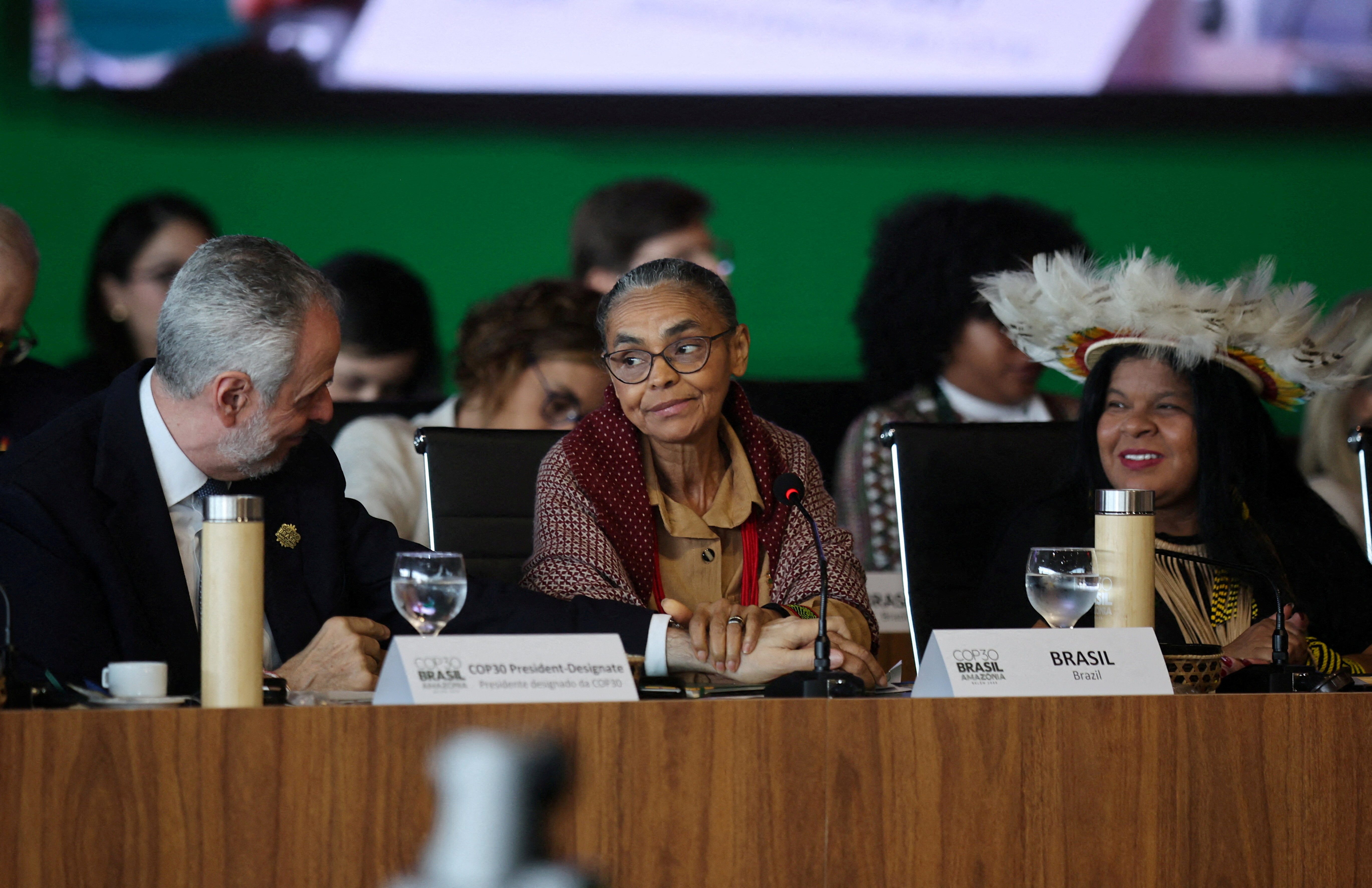Can businesses and governments turn the tide on nature loss at COP16?

COP16 is the world’s best chance to commit to meaningful action towards the GBF’s goal of halting and reversing nature loss by 2030.
Image: Pexels/Viktor Landaeta
Stay up to date:
SDG 15: Life on Land
- Nearly two years on from the adoption of the Global Biodiversity Framework (GBF), implementation by governments and businesses has been slow.
- COP16 is the world’s best chance to commit to meaningful action towards the GBF’s goal of halting and reversing nature loss by 2030.
- Businesses will play a critical role in helping deliver the GBF targets though voluntary actions and pressure on governments to reform policy.
In December 2022, the world came together to recognize the scale of the nature crisis and to take the first major step towards addressing it. At the UN Biodiversity COP15 in Montreal, 196 countries adopted the Global Biodiversity Framework (GBF), which set a roadmap for all parts of society to reach a common goal: to halt and reverse nature loss by 2030.
Badged “nature’s Paris moment”, the adoption of the GBF marked a turning point. But two years on, progress towards its implementation has been slow, raising the stakes for COP16, which takes place in Colombia next week.
A historic opportunity to turn the tide on nature loss
As an implementation COP, COP16 presents a crucial opportunity for policy-makers, corporate leaders, scientists, academics and representatives from civil society to move into collaboration and delivery mode.
It’s hard to overestimate the importance of this moment. The Planetary Health Check shows that six of nine planetary boundaries have already been breached (from atmospheric carbon dioxide levels to changes in land and water use), and there is imminent breach of a seventh. Failing to stem the decline of our natural world, which underpins our societies and economies, would be catastrophic. Unchecked nature loss will bring greater risks and cost, and would dwarf the already huge impacts of recent crises, such as the 2008 financial crisis or the COVID-19 pandemic.
This is not to say that delivering the Global Biodiversity Framework will be easy. It requires both governments and businesses to radically step up their efforts, and to work together in new ways to quickly build on the modest but encouraging progress made so far.

Bold enabling policies
On the policy side, governments have a crucial role to play by setting ambitious national plans and by adopting policies and regulations that will incentivize businesses to take action. However, just under half of governments (44%) have currently updated their National Biodiversity Strategies and Action Plans (NBSAPs) or national targets since COP15.
In line with Target 15 of the Global Biodiversity Framework, some countries and regions are introducing encouraging regulation on mandatory nature-related disclosure – for example, China’s move to require 450 listed companies to disclose nature-related information by 2026.
Yet other developments undermine any significant progress: Global environmentally harmful subsidies (EHS) are now worth at least $2.6 trillion a year, equivalent to 2.5% of global GDP. This means we are spending more than ever on subsidies that accelerate the destruction of ecosystems and species extinction. To ensure policy coherence and an unambiguous shift towards a nature-positive economy, we need a fast and effective reform of EHS as set out in Target 18.
Mandating nature-related disclosures and reforming EHS are two of 20 policy asks that the Business for Nature coalition has developed with input from over 150 partners, to encourage governments to adopt measures that will ease and embolden corporate nature action. The asks are grouped under five key recommendations endorsed by over 230 businesses with $1.7 trillion in combined revenues.

Enlightened corporate action
On the business side, there have also been positive moves from forward-thinking companies, who understand a healthy planet is the foundation of a resilient business. A growing number of businesses are taking steps to transform their models and operations, and more than 25 companies have now developed and published credible nature strategies through the It’s Now for Nature campaign. These companies, including GSK, Kering, L’Occitane Group, Natura &Co and Orsted, have clearly articulated how they will address their most material impacts and dependencies on nature. They are setting an example in terms of transparency and accountability, and giving confidence to other businesses to start developing their own strategy.
However, these voluntary efforts are far from the norm. And corporate investments in activities that restore nature – an estimated $35 billion a year – are dwarfed by the $5 trillion in private finance that still directly harm ecosystems.
In other words, voluntary action by progressive businesses is not enough – underlining the vital importance of governments mandating and regulating for meaningful change.
Accept our marketing cookies to access this content.
These cookies are currently disabled in your browser.
How business leaders can contribute to a nature-positive world
The key to tackling the nature crisis lies in collaboration and integration. In the narrowing window, there is much that business leaders can do to encourage policy-makers to change the rules of the economic game in nature’s favour.
1. Support the effective implementation of the Global Biodiversity Framework by transforming their organization’s operations and investments. This means embedding nature in all aspects of their decision-making; prioritizing sustainable resource use in their operations; and aligning their investments with nature-positive outcomes. Resources such as the Nature Strategy Handbook and the sector-specific nature-positive actions reports, which draw on guidance from organizations such as the TNFD and SBTN, are crucial tools.
2. Advocate for bold policy from governments at all levels – from supporting the strengthening of global agreements on key nature loss challenges to helping shape and deliver NBSAPs, and working with trade associations to back enabling sectoral policies.
3. Actively participate in COP16 to signal to governments that leading businesses stand ready to contribute with meaningful and ambitious action. Business leaders can participate in negotiations through bilateral meetings, events and workshops, and showcase the steps they are already taking.
4. Collaborate and connect with like-minded businesses and other stakeholder groups present at the conference – including cities, Indigenous Peoples, local communities, academia and youth – to improve their actions and strategies.
We are at a pivotal point. To deliver on the ambition set at COP15, the UN Biodiversity COP16 must be the moment where bold leadership and radical collaboration between policy-makers and business leaders usher in a new era of nature-positive action. Our future and livelihoods depend on it.
What is the World Economic Forum doing about nature?
Don't miss any update on this topic
Create a free account and access your personalized content collection with our latest publications and analyses.
License and Republishing
World Economic Forum articles may be republished in accordance with the Creative Commons Attribution-NonCommercial-NoDerivatives 4.0 International Public License, and in accordance with our Terms of Use.
The views expressed in this article are those of the author alone and not the World Economic Forum.
Related topics:
Forum Stories newsletter
Bringing you weekly curated insights and analysis on the global issues that matter.
More on Nature and BiodiversitySee all
Sarah Franklin and Lori Ferriss
November 12, 2025
Alejandra Castro, Cassio Ferreira, Ana Gonzalez Pelaez and Nathanial Matthews
November 11, 2025
Andrea Willige
November 10, 2025



